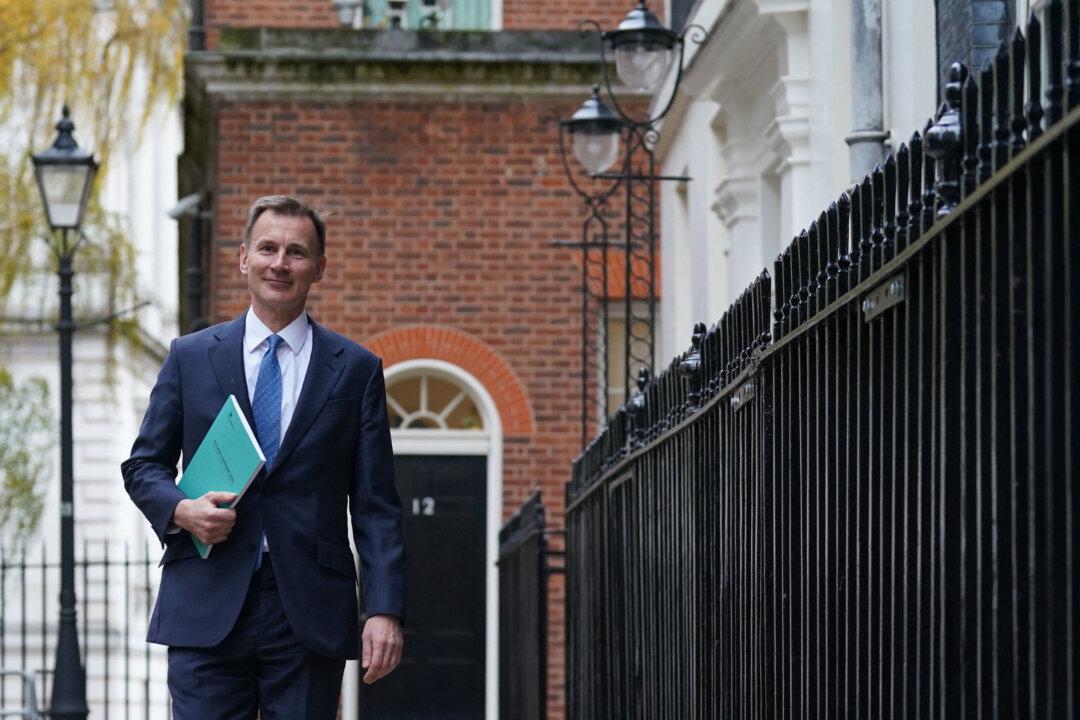Chancellor Jeremy Hunt has cut national insurance for 27 million workers by 2 percent as he outlined an Autumn Statement that set out battle lines with the Labour Party in the run up to next year’s general election.
Mr. Hunt told a packed House of Commons on Wednesday the economy was “back on track” and said his Autumn Statement contained “110 different measures to help grow the British economy.”





